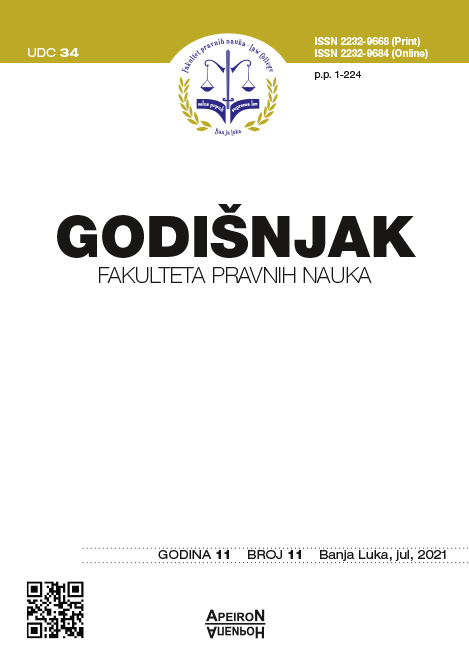Use of Legally Non-Binding Instruments in Contemporary Practice of International Relations
DOI:
https://doi.org/10.7251/GFP2111091GAbstract
The article explores the use of legally non-binding (informal) instruments in contemporary international practice by international political actors. In this context, the article examines definitions and main characteristics of legally non-binding instruments, as well as their effects. In addition, the use of this type of instruments was assessed as a practical response to the need of concerting between the political actors at the international plane due to their functionality and flexibility. It was concluded that these instruments implied a softer form, unlike treaties, and the act of their conclusion does not require conducting a formal and cumbersome procedures, such as parliamentary ratification. These instruments imply political commitments between their parties and their effects are usually shielded by the bona fides principle. Although these instruments are generally deprived of legally binding effects, they remain quite pragmatic tools in brokering political agreements at the diplomatic level between relevant international political actors.
